A constant stream of new investments has facilitated growth in the complexity and diversity of the sector. Some point to the tax regime as a major driver of foreign direct investment. Manufacturing excellence and the calibre of its workforce have been critical, however. The IMD World Competitiveness Yearbook puts Ireland in the lead for the flexibility and adaptability of its workforce.
The calibre of Ireland’s pharmaceutical talent pool is readily apparent in the executive ranks. Niamh O’Driscoll, of Ireland-based Kestria member Fastnet Executive Search, follows one leader’s career as he navigates the global pharmaceutical industry bridging nations and cultures along the way.
Paul Downing has spent much of his career in leadership roles in the Irish pharmaceutical industry. International exposure, however, has been key to developing his leadership style, he said.
After completing a PhD at the University of Sheffield in 1997, Downing joined Novartis in Grimsby, UK. His exposure to the Irish pharma sector began in 2001, when he accepted an operations role at a Novartis chemical facility in Cork.

Global Perspective
Downing went on to work across the globe during his tenure with Novartis and has held senior international roles in manufacturing, operations and global strategy. His experience navigating challenges across several geographies with Novartis, then at Chanelle Group, an Ireland-based family-owned generics company, and later at Hovione, have all contributed to developing his leadership capacities. Leadership requires embracing change, diversity and progression, he said, and most of all, requires adaptability.
It’s critical to embrace cultural nuances when working overseas, but leaders of great companies apply the same methodologies and techniques to achieve organisational objectives regardless of the geography in which they’re operating, or the people they’re working with, he said. Great leaders have clear vision, passion and purpose, understand human behaviour and motivation and demand great things of people, he added.
Geography has little bearing, Downing said. The ‘engine’ of these far-flung operations is the local workforce, which tends to be effective with little fuss, he said, “once they have a purpose with defined objectives, targets and deadlines agreed by all.”

Sensitivity Pays
Emotional intelligence and cultural competence are key when managing people from different backgrounds, Downing said. When he took up his first assignment in Ireland with Novartis, he found a conversation over dinner with a peer during the first few weeks invaluable in deepening his understanding of the local culture. The style of leadership Downing was accustomed to in the North of England did not transfer well to his new role, he said. This frank interaction made it clear a ‘command and control’ approach, so effective in his previous role in England, would not work well in Ireland. Building trust was critical, taking an interest in each individual and recognising their contribution and potential, essential. Armed with newfound wisdom, he tweaked his communication style and the improved engagement with his team culminated in a 25% increase in productivity at the plant.
Since his cultural awakening over dinner, Downing said he has always taken the time to research and understand local culture and adapt his style to gain respect and engage his peers. In his next assignment, at Novartis’ solid dose manufacturing and packaging plant in New York, Downing was lauded for engagement, empowerment and accountability and doubled overall equipment effectiveness, a key performance indicator, within 12 months.

Congruous Chemistry
In 2009, Downing accepted the role of Global Head of Pharmaceutical Operations and Strategy at Novartis headquarters in Basel, Switzerland. This appointment kicked off what he described as the most challenging, complex and culturally diverse role of his career, lasting five years. He inherited a corporate strategy team of European scientists and immediately reorganized for functional, gender and cultural diversity using Myers Briggs science to ensure complementary personality traits. He selected an equal mix of men and women from the EU, Asia, the US, South America and Northern Africa, with diverse skills that covered accounting, chemistry, quality and supply chain management. The team was also diverse in age.
This team was highly effective, Downing said. “The chemistry was extraordinary, and this, coupled with the depth of expertise, facilitated highly collaborative and robust decision-making.”
Interacting with headquarters in this role was dramatically different from previous positions he’d held, and again, he found himself adapting his leadership style. “Adapting as a leader in a different country or culture from your origin requires an understanding of both conscious and unconscious bias – it may even require you, at times, to align with the stereotype perception when interfacing with corporate,” Downing noted.
Introspection
Between 2009 and 2012, Downing worked with 16 sites across Novartis’ global network under review. The organisational structures across the network varied from patriarchal and hierarchical to team-oriented organisations. Some sites performed well, others had productivity and/or quality problems. He was moved in almost every case by the same human experience, he said. “The genuine support people have for each other, the local community, and the pride in their operation was evident within minutes of interacting with staff.
Throughout his time in the Global Head role, Downing said he always paused to research and consider cultural differences and that undoubtedly helped with the initial stages of building rapport and his ability to foster positive relations. In practice, however, his approach in executing strategy was not that different across jurisdictions. Unambiguous, honest communication in relating his objectives and exploring possible outcomes, along with empathy and diplomacy were fundamental in every situation, he said.

A Family Affair
Moving from a global multinational giant to an Irish family-run generics manufacturer was another significant transition in Downing’s career. His first role after ‘big pharma’ was Director of Manufacturing at Chanelle from 2012 to 2014. He then joined Hovione, a leading family-owned multinational contract manufacturer headquartered in Lisbon. He currently holds the position of General Manager, Hovione Ireland. Given the proximity to key customers, Ireland is a prime strategic location for the Portuguese firm.
Downing said he experienced seismic cultural changes in moving from large multinational pharmaceutical companies to their smaller peers. A frantic pace, horizontal structure and extreme accountability defined his role at Chanelle as well as Hovione, he noted. These smaller companies require closer personal connections, greater empathy and understanding, he said. The founding family’s legacy endures and the shareholders are accessible and personally invested in the business, he added.
“The owners are people you know and can approach. In the world of big pharma you have to get past an army of advisors. At smaller, family-owned companies, you always get direct, timely feedback – decisions are made quickly and you have a huge amount of autonomy,” he said.

Team members also respond differently at smaller firms, he noted. “You get a lot of discretionary effort in family companies as the fate of the operation is the responsibility of all staff as stakeholders in their own future, Downing said, noting personal decision-making in ensuring each member feels supported and valued is key. “You can lose the discretionary effort quickly if you lack genuine empathy and understanding. How the leader reacts when a personal issue needs the team member to focus on things outside of work is crucial. “The adage is, ‘treat others as you would like to be treated.’ The diversity adage is, ‘treat others as THEY want to be treated.’ Always put the people first,” Downing said.
Respectable Differences
Diversity in leadership teams and organisations is an essential ingredient, Downing said. In his current role, his site leadership team is 50% female and 50% male and is generationally diverse, he noted. The site as a whole has a mix of 14 nationalities, ages 20 to 60, with a 70% male-30% female split.
“Diversity should permeate throughout the organisation and it is the diversity and inclusive mind-set of the leadership team that drives this,” Downing said, noting he now leads the most effective, high-performance team of his career.
Executive Summary
After a successful international career spanning almost two decades, Downing concludes that there is no ‘one size fits all' style of effective intercultural leadership.
Understanding and nurturing the culture, the heart and soul of the organisation along with the agility and the ability to embrace a frantic pace of change is critical and only the adaptable will survive. He also advocates remaining slightly detached and not getting hung up on total cultural assimilation, which can have the unintended consequence of diluting your mandate. Irrespective of culture, common sense and diplomacy must prevail. A strong leader must articulate a clear and compelling vision that resonates and build a diverse leadership team to support robust decision-making based on complementary expertise and multiple perspectives.
“Most of all, effective leadership is about engaging and empowering people – understanding that people are unique and have many talents. Your role as a leader is to get that personal connection and help them reach their full potential. In my experience that is the same the world over”, Downing concluded.


